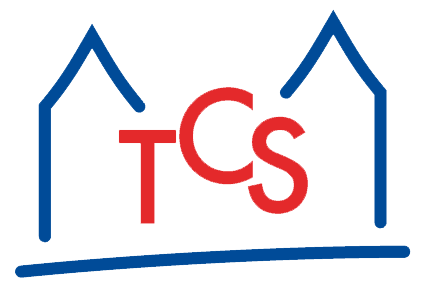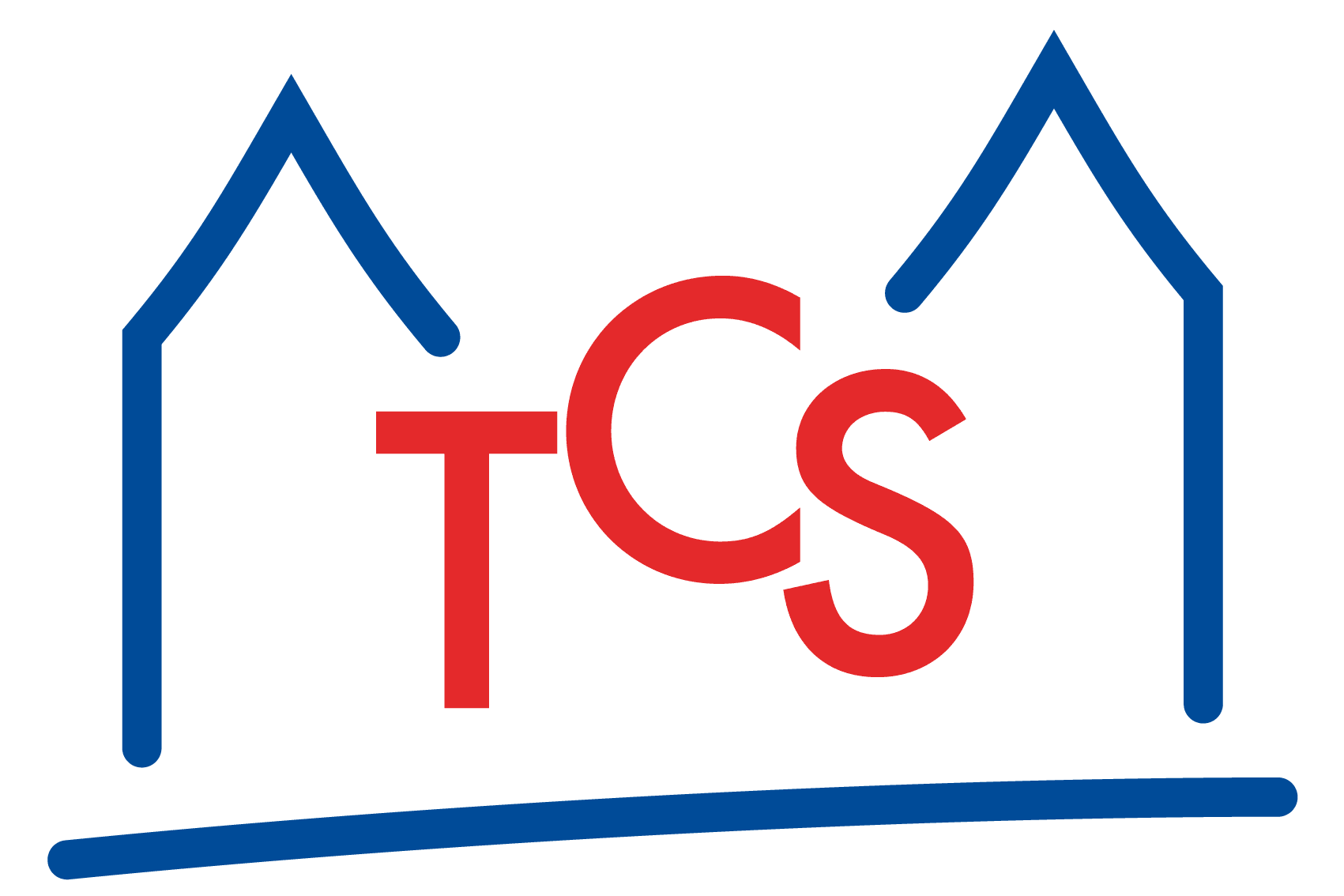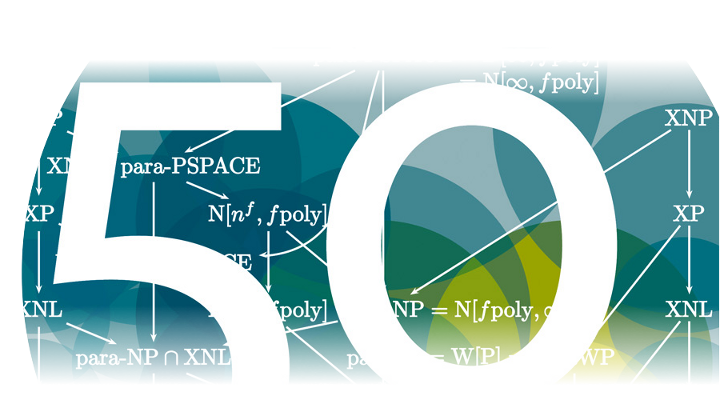-
15. November 2001, Musik- und Kongresshalle (MuK) Lübeck, Willy-Brandt-Allee 10
-
Dienstag, 18. Dezember 2001, 16 Uhr c.t. Hörsaal 1, SFS
Prof. Wolfgang Bein, Dept. of Theoretical Computer Science, University of Nevada, Las Vegas/USA
Trackless Online Algorithms
Abstract zu seinem Vortrag
-
Montag, 29. Oktober 2001: 18 h ct, H1/SFS,
Prof. Farid Ablayev, Dept. of Theoretical Cybernetics, Kazan State University/Russia
The Complexity of Restricted Branching Programs: A Communication Complexity Approach (results and open problems)
In theory branching programs (BP-s ) are useful for
investigation the amount of space necessary to compute various
functions.
Developments in the field of digital design and verification have led to the
restricted forms of branching programs. A most common model used for
verifying circuits is a polynomial size ordered read-once branching
program also called an ordered binary decision diagram (for short
OBDD). The importance of OBDD for practice based on the following fact:
Boolean manipulations with OBDD (equivalence checking, ...) can be performed
deterministically in polynomial time. But many important functions
(such as multiplication) can not be presented by polynomial size
OBDD-s. So, important problem is to investigate the power of
"slightly" more general models than OBDD-s.
In the talk we review results on randomized OBDD-s (ROBDD). It was proved
in 1996 that ROBDD-s are more powerful than their deterministic
counterparts.
We present lower bounds proof methods (based on communication games)
and lower bound results for restricted branching programs, namely
OBDD-s, k-OBDD.
Next we present a generalization of read-once branching program, which we
call regular (1,+k )-branching program. We present proof methods and new lower bound results for
regular (1,+k )-branching program models based on communication complexity techniques.
-
Dienstag, 30.10.01: 16 h ct, H3/SFS
Prof. Farid Ablayev, Dept. of Theoretical Cybernetics, Kazan State University/Russia
On Computational Power of Quantum Branching Programs
Quantum computations became intensively growing reseach area in the last
decade. We would like to refer to a famous Shor result. The model of
classical Branching programs is well known in Practical and Theoretical
Computer science. In the talk we introduce a model of a Quantum
Branching Program (QBP) and study its computational power. We define
several natural restrictions of a general QBP model, such as a
read-once and a read-k-times QBP, noting that obliviousness is inherent in a
quantum nature of such programs.
In particular we show that any Boolean function can be computed
deterministically (exactly) by a read-once QBP in width O(2n),
contrary to the analogous situation for quantum finite automata.
Further we display known symmetric Boolean function MODpn
which is computable by a read-once QBP with O(log pn)
width, which requires a width Omega (pn)
on any deterministic read-once BP and (classical) randomized read-once BP with
permanent transitions in each levels.
We present a general lower bound for the width of read-once QBPs, showing that the upper bound for the
considered symmetric function is almost tight.
-
04. Juli 2001: 17.15 h, R3/Haus 21
Prof. Dr. Volker Claus, Fakultät Informatik der Universität Stuttgart
Ausbildung in "Konstruktiver Informatik" - Ansätze für Inhalte und ihre Vermittlung
Seit über 100 Jahren kümmern sich die Naturwissenschaften um die
Gesetzmäßigkeiten der Rohstoffe "Materie" und
"Energie", während Bauwesen, Maschinenbau, Elektrotechnik usw. dieses
Wissen in (hochkomplexe) Geräte und Werkzeuge umsetzen. Ist eine
ähnliche Arbeitsteilung beim Rohstoff "Informatik" zu
erwarten, d.h., wird die Informatik in Zukunft vorwiegend Grundlagen erforschen,
während ingenieurmäßig arbeitende Fächer wie
Softwaretechnik, Netzwerktechnik, CAE, Geoinformatik,
Kommunikationstechnik usw. die Umsetzung in Systeme, Werkzeuge und
deren Instandhaltung realisieren? Werden Dutzende neuer Studiengänge
in den nächsten Jahr(zehnt)en unter den verschiedensten
Randbedingungen (Branchen, Ausbildungsstätten,
Persönlichkeitsbildung, Langlebigkeit) vorbereitet, erprobt
und eingerichtet? Welche Methoden, Inhalte und fachspezifischen
Vermittlungsmethoden sind hierfür festzulegen? Im Vortrag
werden für solche konstruktiv ausgerichteten Studiengänge
geeignete Inhalte und Vermittlungstechniken vorgestellt, begründet und
(auch im Kontext von e-Learning, Praxissemestern,
Interdiszplinarität und Internationalisierung) diskutiert.
- 20. Juni 2001: 17.15 h, R3/Haus 21
Prof. Dr. Gunter Dueck, IBM Distingished Engineer and Member of the IBM Academay of Technology
"E-Man": Informatiker in neuer Führungsrolle?
Wer ist das, ein(e) Informatiker(in)? Warum gibt es so wenige davon in
einer Zeit, in der man sie in Gold aufwöge? Tests aus der
Persönlichkeitspsychologie zeigen, dass Informatiker genau so
"anders" sind, wie man sie sich gedacht hätte. Ihre
Eigenschaften sind etwa die, die man sich intuitiv unter dem Stichwort "New Economy"
vorstellen würde. Der Kampf der neuen gegen die alte
Ökonomie ist aus dieser Sicht einer der verschiedenen Menschenarten. Der neue
Mensch, "E-Man", bestimmt in immer stärkerem Maß,
wie "der normale Mensch sein soll". Wird die typische
Persönlichkeitsstruktur des Informatikers langsam ein
Maß für den Rest der Menschen?
Neues und Querdenkerisches vom Autor der Monographie "Wild Duck, Empirische
Philosohpie der Mensch-Computer-Vernetzung", Springer Verlag, 2000
(Kurzbeschreibung und Rezensionen findet man bei
www.amazon.de).
Nach einer kurzen Einführung in den MBTI-Persönlichkeitstest
werden Statistiken besprochen, welche "Menschen" typischerweise
Manager, Computerarchitekten oder Hochschulabgänger oder Lehrer sind.
Jede Gruppe ist schwerpunktmäßig anders. Der Vortrag
bringt die Problematiken auf den Punkt, den die Verschiedenheiten im Berufsalltag
erzeugen. ("Freiheit von Forschung" vs. "Evaluation der Professoren"
oder "Ich erziehe gerne Kinder" vs. "Ich liebe Kinder" oder "Ein
Projekt soll glänzen" vs. "Hauptsache, alle Termine sind eingehalten"
oder "Dieser Mediziner ist eine Koryphäe beim Operieren" vs. "...
bei der Diagnose" vs. "...als Seelenprofessor Brinkmann" vs. "...als
Wissenschaftler")
Wer sich für diese Thematik vorbereiten möchte, kann sich
vorher einem Selbsttest
unterziehen.
- 07. März 2001, 17 h c.t. Seefahrtschule/H1
Herrn PD Dr. Frank Stephan, Institut f. Mathematik, Uni Heidelberg
"Ressourcen-Beschränkte Hausdorff-Dimension"
Abstract zu seinem Vortrag
- 31. Januar 2001, 17 Uhr ct, H1/SFS
Prof. Leszek Pacholski, Institute of Computer Science, University of Wroclaw, Poland
Set Constraints and Program Analysis
The topic of set constraints is a pearl among the research
topics on constraints. It combines theoretical investigations (ranging
from logical expressiveness, decidability, algorithms and complexity
analysis to program semantics and domain theory) with practical
experiments in building systems for program analysis, addressing
questions like implementation issues and scalability. The research has
its direct applications in type inference, optimization and
verification of imperative, functional, logic and reactive programs. Set constraints
are first-order logic formulas interpreted over the domain of sets of
trees. These sets of trees are possibly recursively defined. The
first-order theory that they form is interesting on its own right.
Essentially, we study it because the problem of computationally
reasoning about sets (of trees) is fundamentally important. Thus,
research on set constraints can be fundamental research. Research on
set constraints can also be applied research. This is because set
constraints form the algorithmic basis for a certain kind of program
analysis that is called set-based. Here, the problem of reasoning about
runtime properties of a programs is transferred to the problem of
solving set constraints. Several systems have been built, each
addressing a particular program analysis problem (obtained, for
example, by the restriction to a particular class of programs). The latter means
to single out a subclass of set constraints that fits with the analysis
problem and to build a system solving set constraints in this subclass
(efficiently). In my talk I shall define set constraints, present
results concerning complexity of problems concerning set constraints
and finally, I will show how set constraints apply to program analysis
and to verification of cryptographic protocols.
- 17. Januar 2001, 17 Uhr ct, H1/SFS
Prof. Dr. Klaus Jansen, Institut für Informatik und Praktische Mathematik, Universität Kiel
Approximationsergebnisse für kombinatorische Optimierungsprobleme --- Färbungen von Graphen und Scheduling




